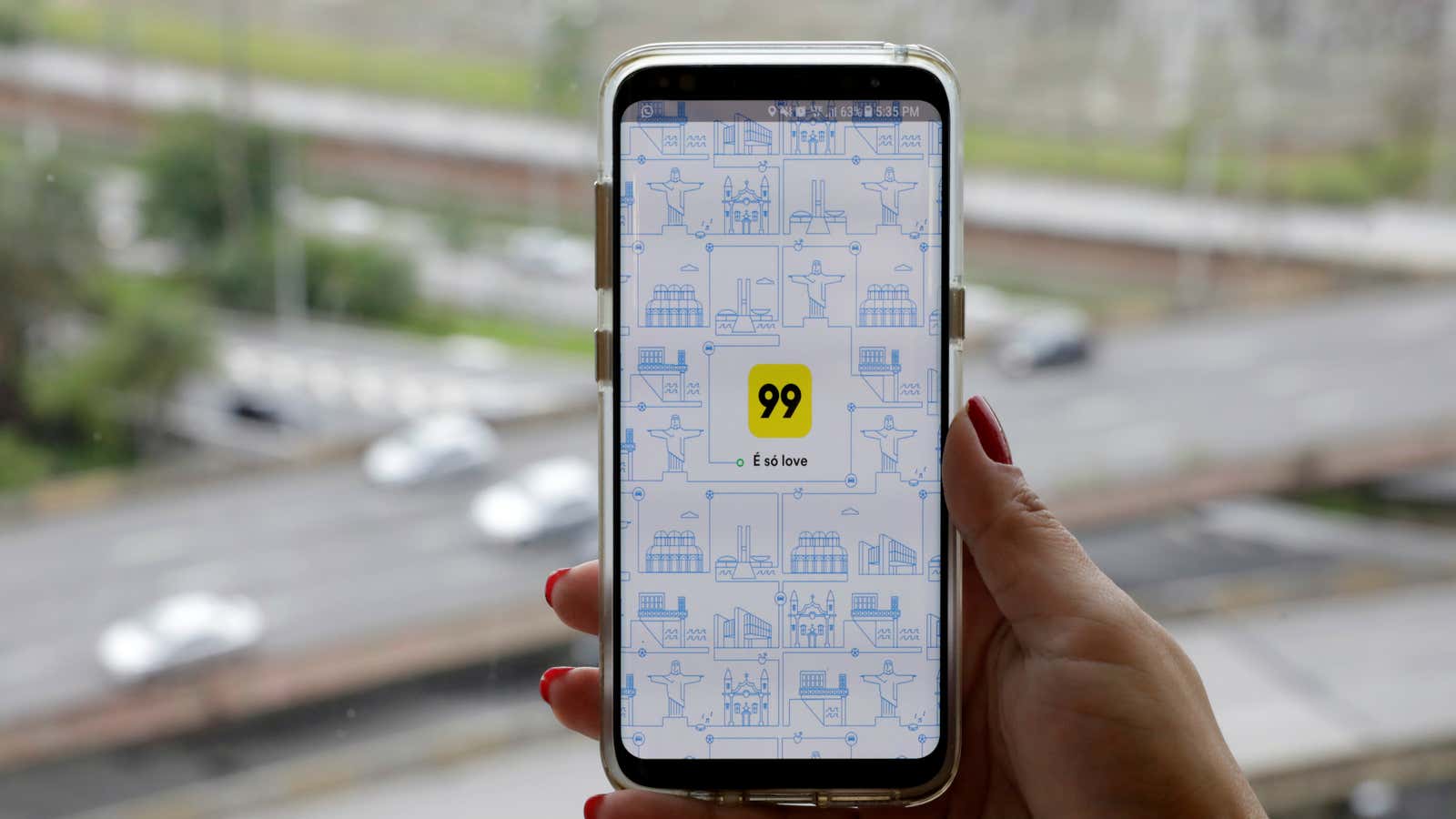Didi Chuxing and Uber may be getting more financially entangled, but their rivalry continues to deepen.
Today (Jan. 4), the Chinese ride-hailing giant announced it would acquire 99, one of Latin America’s major ride-hailing companies. The deal increases Didi’s international reach outside of its borders, and also escalates an ongoing proxy war with Uber, even after the latter gained approval for an investment from Didi backer SoftBank late last month.
Founded in 2013, 99 has been Uber’s fiercest competitor in Brazil, the most populous country in Latin America. Like Didi, the company originated as an app for hailing existing municipal taxis, before venturing out into private ride-hailing. In January 2017, the company scored a $100 million investment from Didi, and in March secured an additional $100 million from Japan’s SoftBank.
Didi has not disclosed the terms of the 99 acquisition, but the New York Times reported the deal (paywall) to be worth around $600 million.
SoftBank once appeared to be the main engineer of an international coalition of Uber competitors that included Didi. Now, the Chinese company is itself increasingly taking a leading role in financing and broadening this coalition. In 2015, the company invested $100 million into Lyft, and also joined financing rounds for Grab in Southeast Asia and Ola in India. In 2017, in addition to funding 99, it participated in a $2 billion investment in Grab with SoftBank, and injected undisclosed sums of money into Careem in the Middle East and Taxify in Europe and Africa.
Didi’s 99 deal, however, is its first-ever full acquisition of an overseas ride-hailing company. It marks the clearest sign yet that it will not stay confined to China and will actively aid Uber’s rivals across the globe. According to The Information, which reported the deal weeks ago before it was finalized, some Didi employees had relocated to Brazil to help 99 launch in new cities (paywall).
The acquisition also shows that Uber and Didi have not yet reached a proper truce In August 2016, the two companies ended their rivalry in mainland China when Didi absorbed Uber’s operations there, while investing $1 billion in Uber’s global business. In exchange, Uber took a roughly 17% stake in Didi.
As a result of SoftBank’s investment in Uber, if Didi accelerates its international expansion, Uber will likely face pressure to merge with rivals like 99. One such merger could occur in Southeast Asia, where Uber remains stuck in an expensive stalemate with Grab. In November, Uber CEO Dara Khosrowshahi said he was “not optimistic” about the company’s prospects for profitability there. Should Didi continue to fund or acquire more companies like 99, that pessimism will likely extend to more markets.
